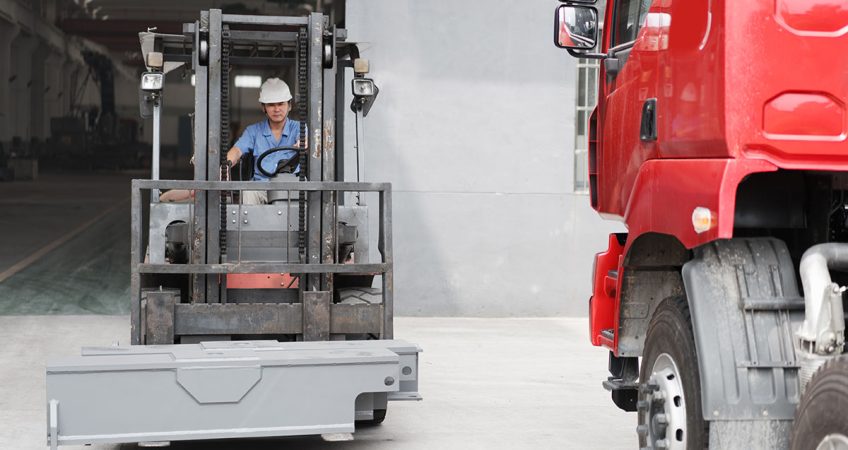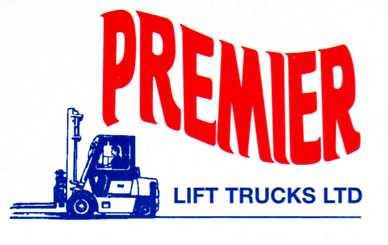
Outdoor forklifts are a backbone for the logistics and construction industry. They help move heavy loads and materials from one place to another with ease. However, operating an outdoor forklift can be challenging and even dangerous if proper safety protocols are not followed. There are several unique challenges that come with outdoor forklift operations that operators and managers need to understand. In this guide, we’ll provide you with everything you need to know to operate outdoor forklifts safely and effectively.
Common challenges with outdoor forklift operation
Outdoor forklifts face several challenges that are not encountered in indoor environments. One of the most significant challenges is uneven terrain. The outdoor terrain can be bumpy, rocky, or muddy, which can make it challenging to manoeuvre the forklift. Additionally, outdoor forklifts may need to climb steep inclines, which can be risky if the forklift is overloaded or if the operator is not trained to handle such situations.
Another significant challenge with outdoor forklifts is inclement weather conditions. Rain, snow, fog, or even extreme heat can affect the forklift’s performance and the operator’s visibility. It’s essential to take weather conditions into account while operating an outdoor forklift to ensure the safety of the operator and the load.
Finally, outdoor forklifts may need to operate in areas with limited space or restricted access. In such cases, operators need to be skilled and experienced in manoeuvring the forklift in tight spaces without causing any damage to the surroundings.
Understanding the terrain and weather conditions
To operate an outdoor forklift safely, it’s crucial to understand the terrain and weather conditions. Operators should inspect the site before starting the operation and look for any potential hazards such as uneven ground, rocks, or debris. They should also be aware of any overhead obstructions that may interfere with the forklift’s movement.
Weather conditions can also impact outdoor forklift operations. Operators should be aware of the weather forecast and adjust their operations accordingly. For instance, if it’s raining, they should avoid driving on wet grass or mud, as it can make the forklift unstable. If the temperature is too high, they should take frequent breaks to avoid heat exhaustion.
Safety protocols for outdoor forklift operation
Safety should always be the top priority when operating an outdoor forklift. Operators should follow strict safety protocols to ensure their safety and the safety of others. Here are some essential safety guidelines to follow:
- Always wear the appropriate personal protective equipment, including a hard hat, safety glasses, and high-visibility clothing.
- Inspect the forklift before each use to ensure it’s in good working condition. Check the brakes, tires, and steering system.
- Secure the load properly before moving it. Use straps or chains to prevent the load from shifting or falling.
- Use the forklift’s lights and horns to alert others of your presence.
- Avoid overloading the forklift. Check the load capacity before moving any load.
- Never exceed the forklift’s maximum speed limit, and always follow the posted speed limit signs.
- Always maintain a safe distance from other vehicles, pedestrians, and obstacles.
Tips for effective outdoor forklift operation
Operating an outdoor forklift can be challenging, but with the right techniques, it can be done safely and efficiently. Here are some tips for effective outdoor forklift operation:
- Keep the load close to the ground while moving it. This will improve stability and control.
- Use the forklift’s brakes to control its speed while descending steep slopes.
- Avoid sudden movements or jerky motions while manoeuvring the forklift. This can cause the load to shift and become unstable.
- Always use the forklift’s seatbelt while operating it. In the event of an accident, it can prevent serious injuries.
- Keep the forklift’s forks level while moving a load. This will ensure that the load stays balanced and stable.
Importance of regular maintenance and inspections
Regular forklift truck maintenance and inspections are crucial to ensure the safe and efficient operation of an outdoor forklift. Operators should inspect the forklift before each use and report any defects or malfunctions immediately. Additionally, forklifts should undergo regular maintenance to keep them in good working condition.
Some essential maintenance tasks include:
- Checking the oil, coolant, and hydraulic fluid levels regularly.
- Inspecting the tires for wear and tear and replacing them when necessary.
- Cleaning the forklift regularly to remove any debris or dirt.
- Lubricating the forklift’s moving parts to prevent rust and wear.
By following a regular maintenance schedule, operators can prevent breakdowns and ensure that the forklift is always in good condition.
Training and certification requirements for outdoor forklift operators
Operators of outdoor forklifts need to be trained and certified to operate the equipment safely. Training should cover the safe operation of the forklift, including best practices for load handling, manoeuvring, and safety protocols. Operators should also be trained on how to inspect the forklift before each use and how to report any defects or malfunctions.
Certification requirements may vary depending on the jurisdiction, but most require operators to undergo a written and practical exam to demonstrate their knowledge and skills.
Choosing the right equipment for your needs
Choosing the right equipment for your needs is essential for safe and efficient outdoor forklift operations. Factors to consider when selecting the equipment include:
- Load capacity: Make sure the forklift can handle the heaviest load you’ll be moving.
- Terrain: Consider the terrain where the forklift will be operating. Choose a forklift with the appropriate tires for the terrain.
- Height requirements: If you need to lift loads to a specific height, choose a forklift with the appropriate lift height.
- Fuel type: Choose between electric or gas-powered or diesel forklifts depending on your needs and the environment where they will be used.
Best practices for loading and unloading in outdoor environments
Loading and unloading in outdoor environments can be challenging, but with the right techniques, it can be done safely and efficiently. Here are some best practices to follow:
- Use the correct attachment for the load. Different attachments are available for different loads, such as pallets, drums, or pipes.
- Position the forklift correctly before loading or unloading. Make sure the forklift is on level ground and that the load is within reach.
- Secure the load before moving it. Use straps or chains to prevent the load from shifting or falling.
- Lower the load before moving the forklift. This will improve stability and control.
- Always maintain a safe distance from other vehicles, pedestrians, and obstacles while moving the load.
Conclusion: Prioritising safety and efficiency in outdoor forklift operation
Operating an outdoor forklift can be challenging, but with the right knowledge and skills, it can be done safely and efficiently. By following the guidelines outlined in this guide, operators and managers can ensure that their outdoor forklift operations are not only efficient but also safe for them and their team. Remember to prioritise safety at all times and never compromise on it. By doing so, you can prevent accidents and ensure that everyone goes home safely at the end of the day. If you require any type of forklift truck service from maintenance and forklift truck hire to buying a new or used forklift truck across the UK Premier Lift Trucks can help. We work with clients across the North West including Manchester, Bolton, Leeds, Liverpool, Preston, Blackpool, Wigan and Lancaster. Contact us for more information.
